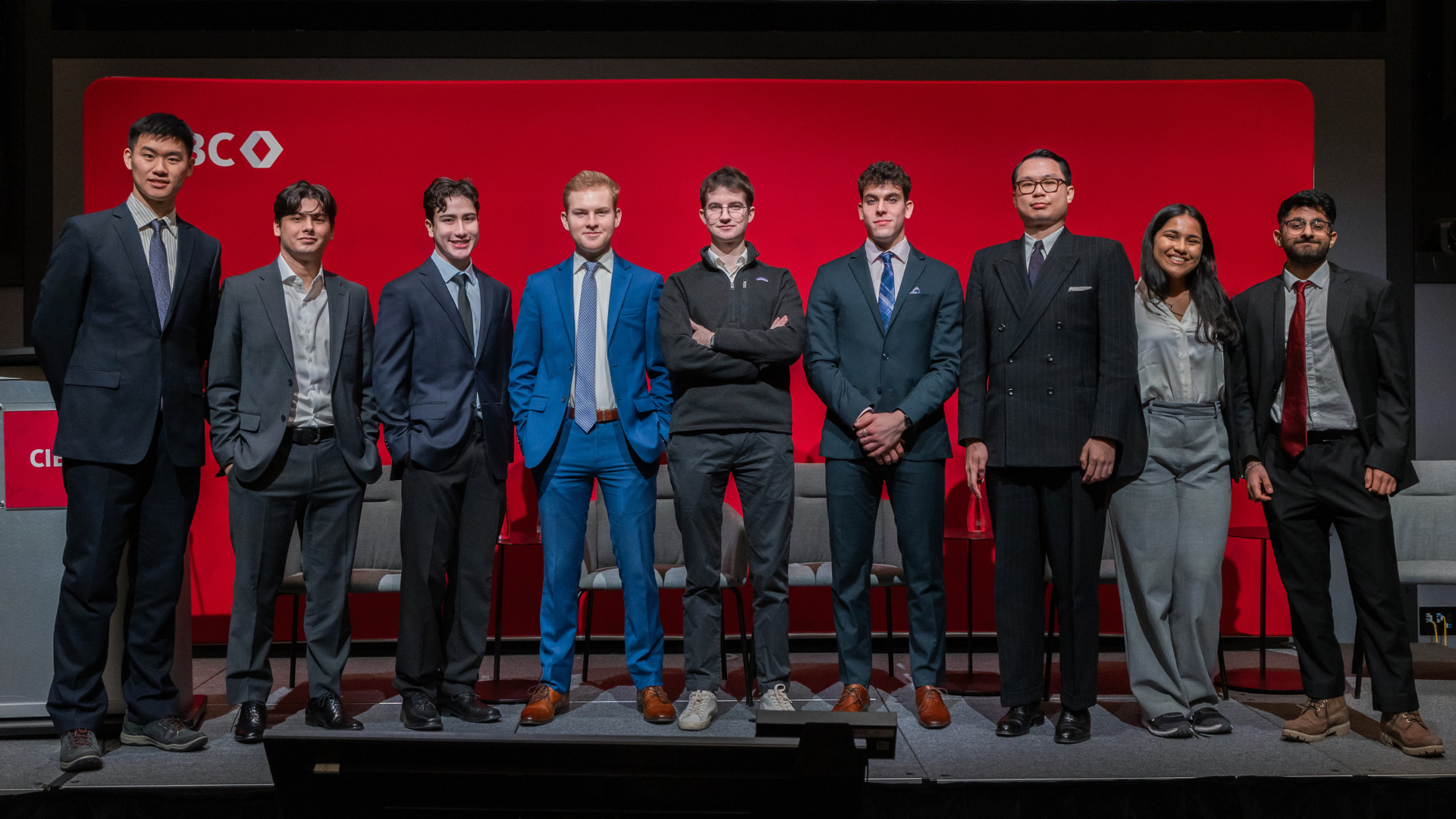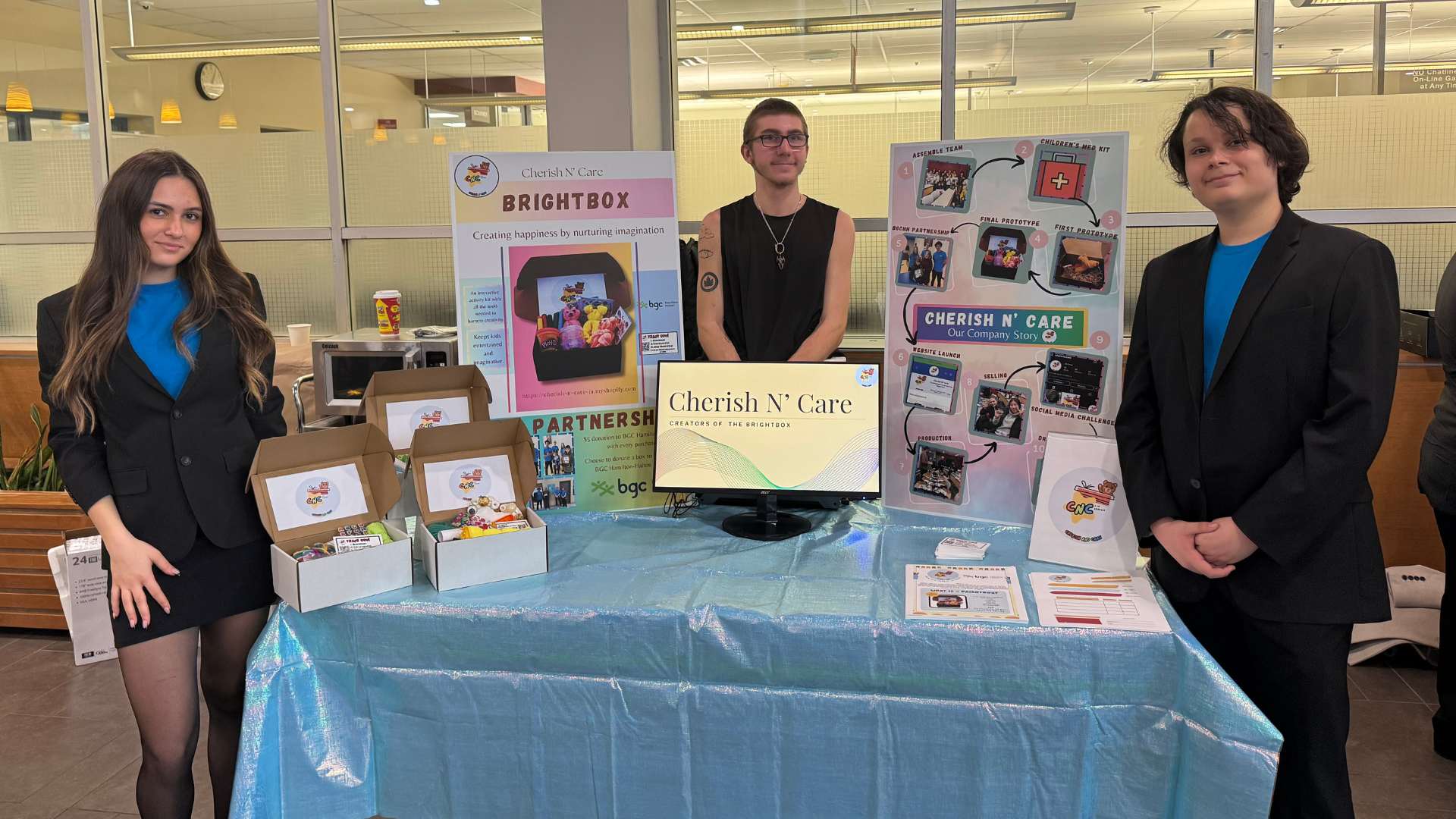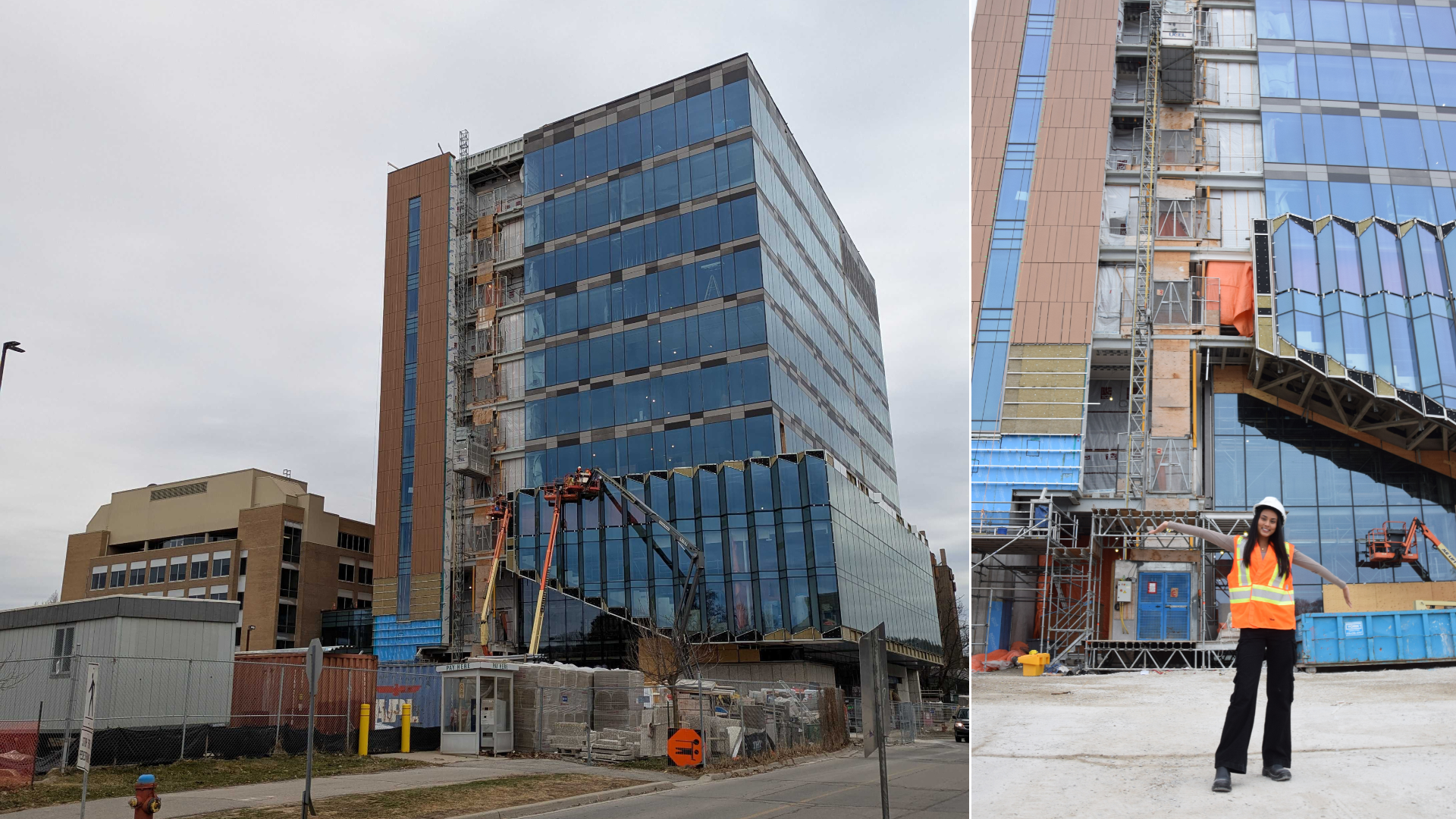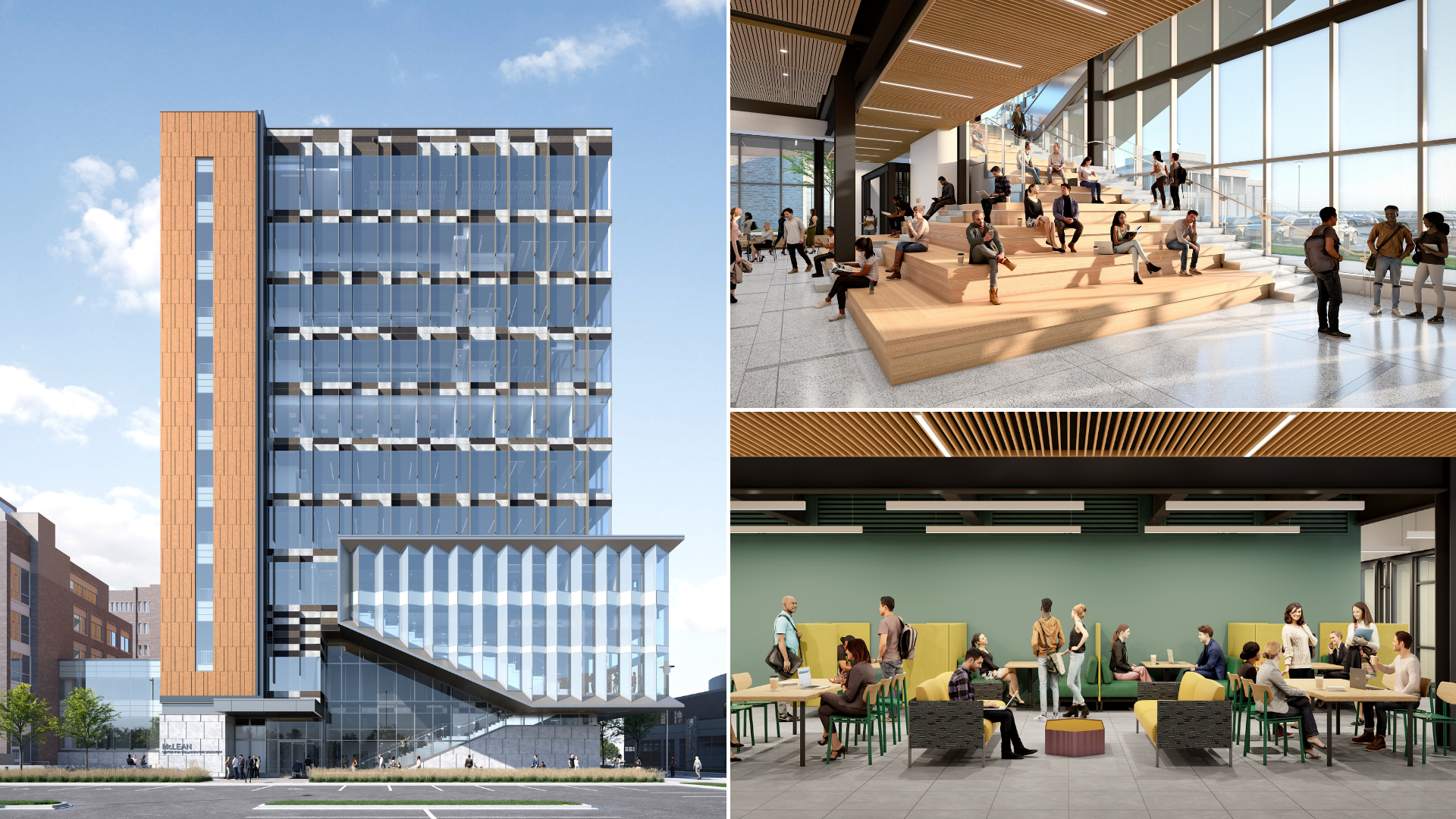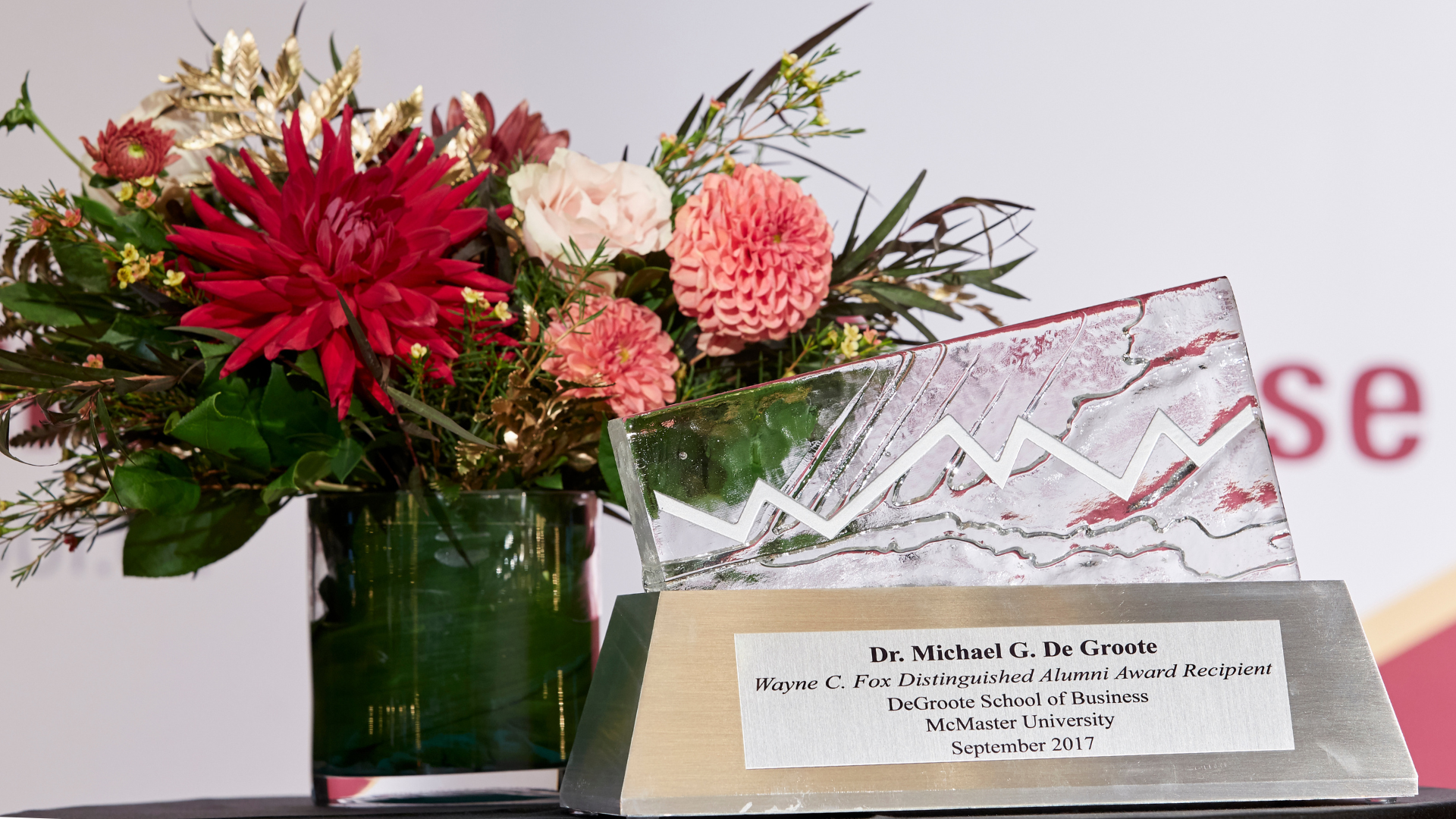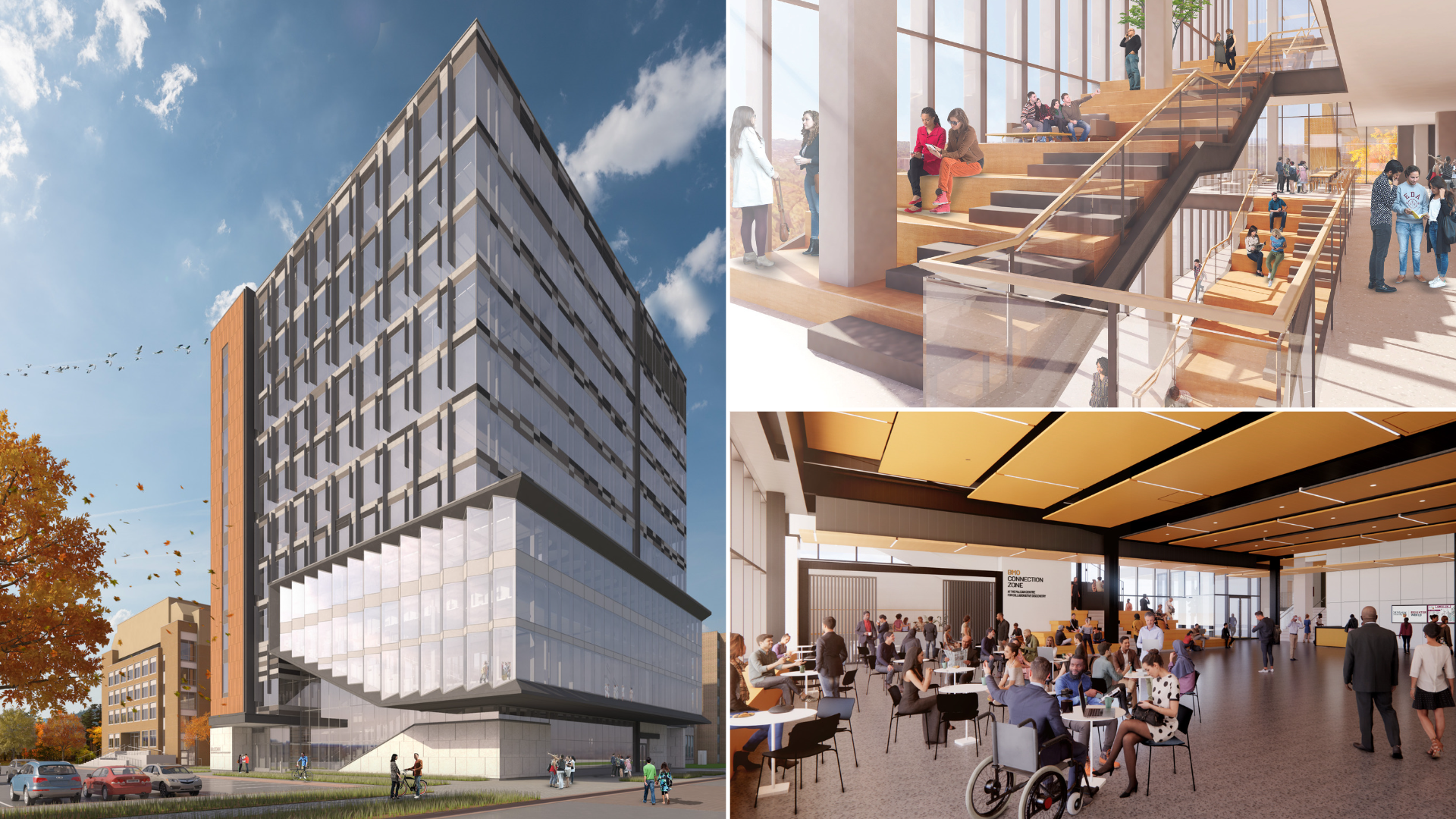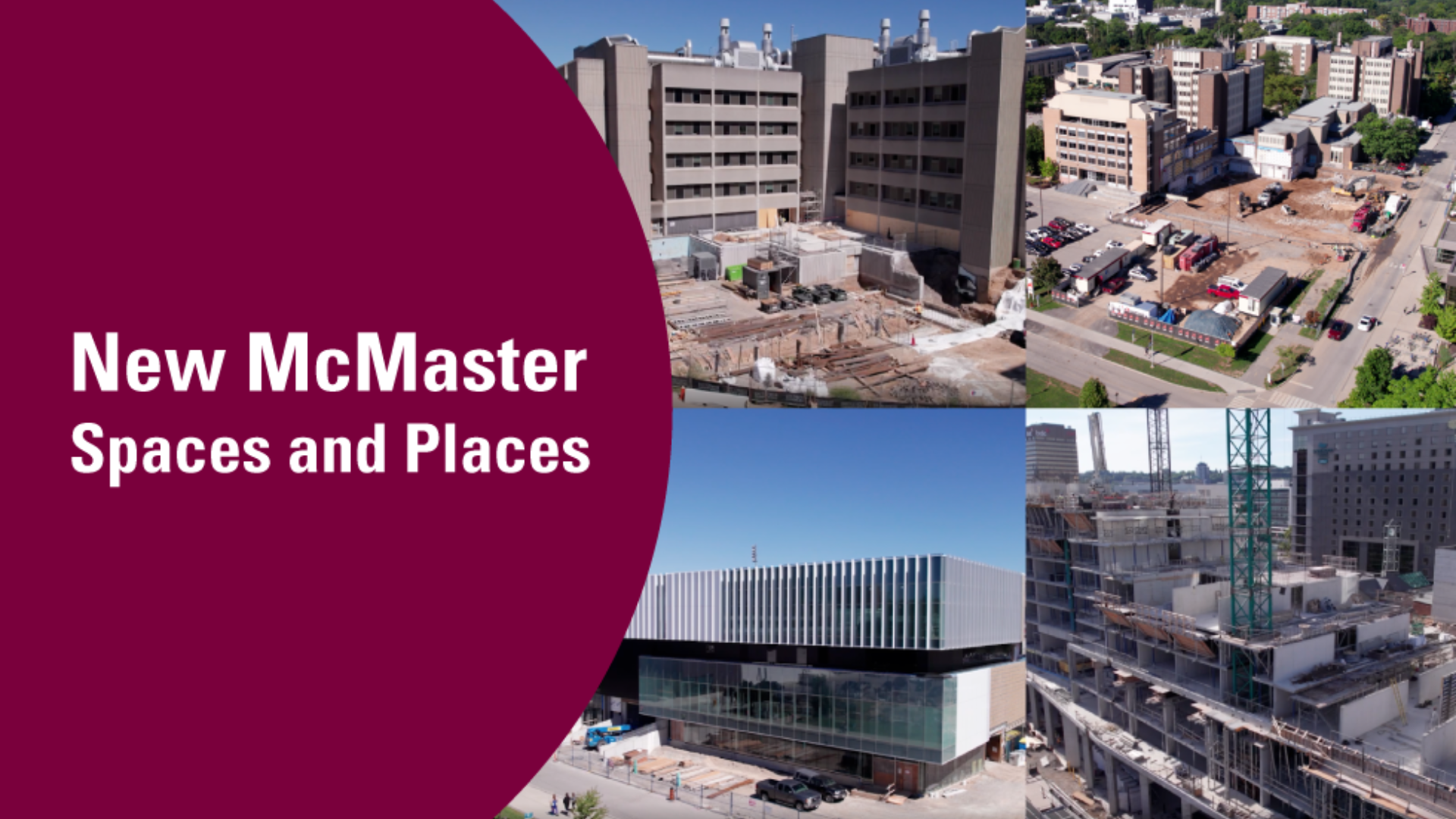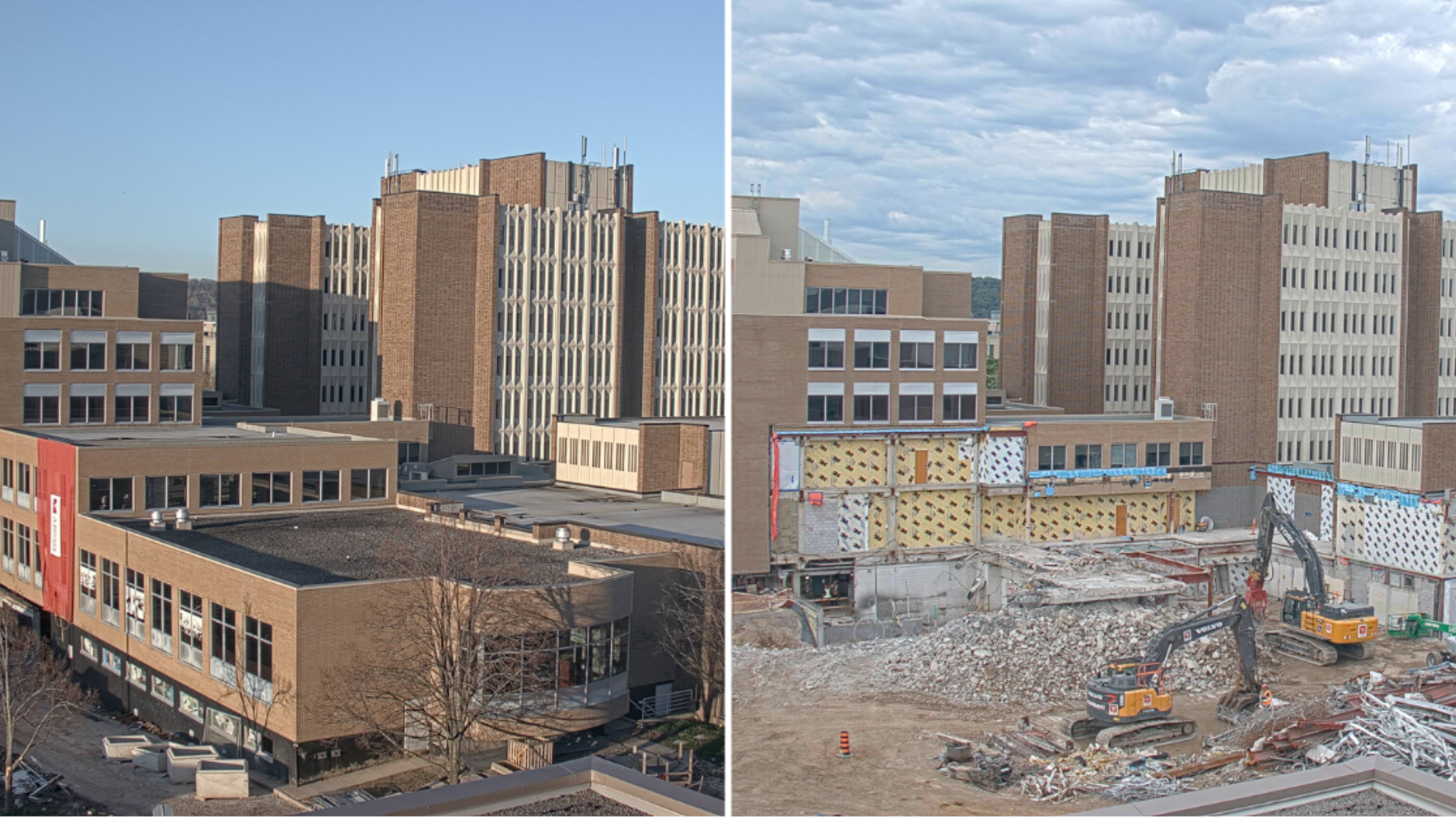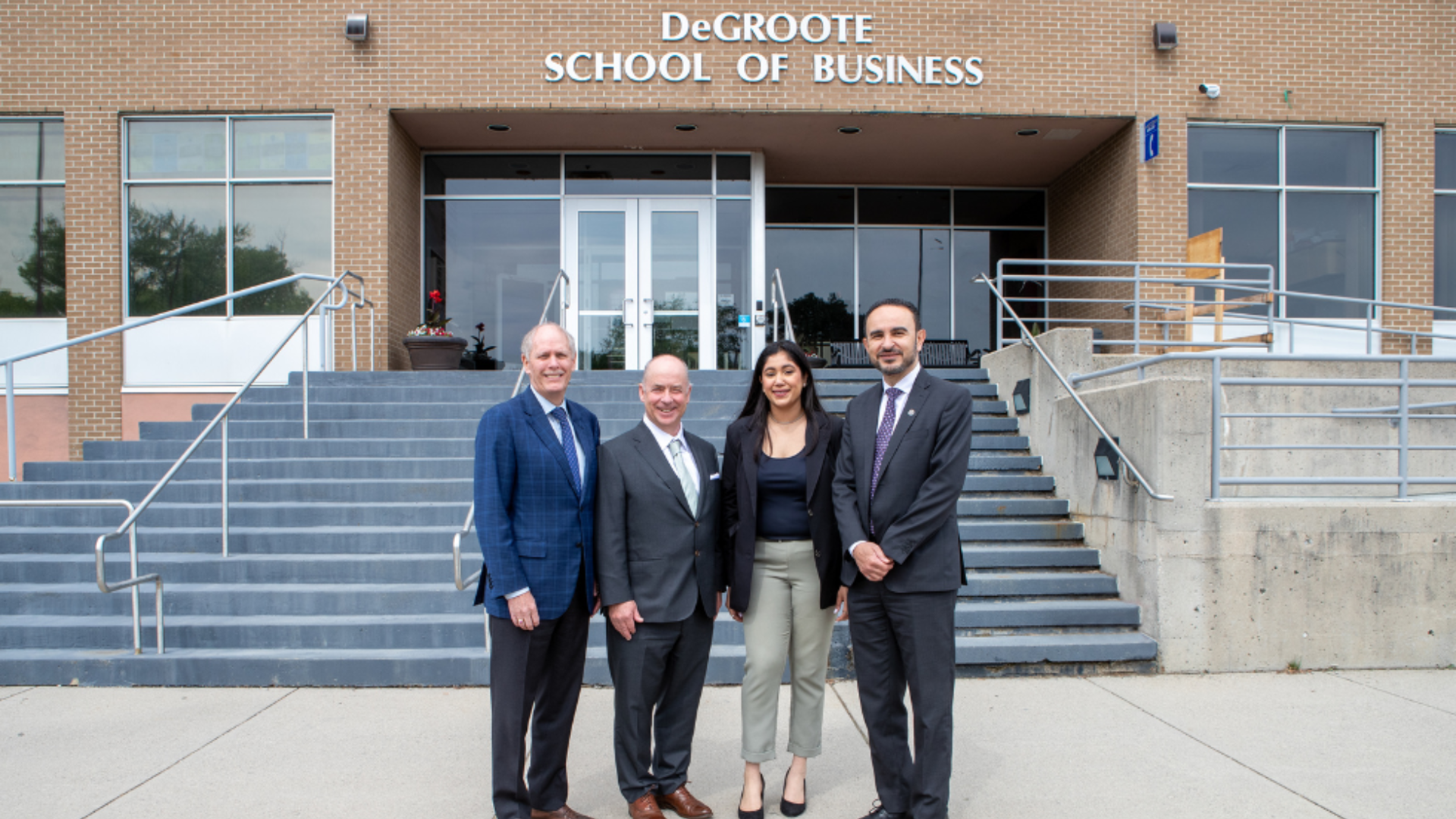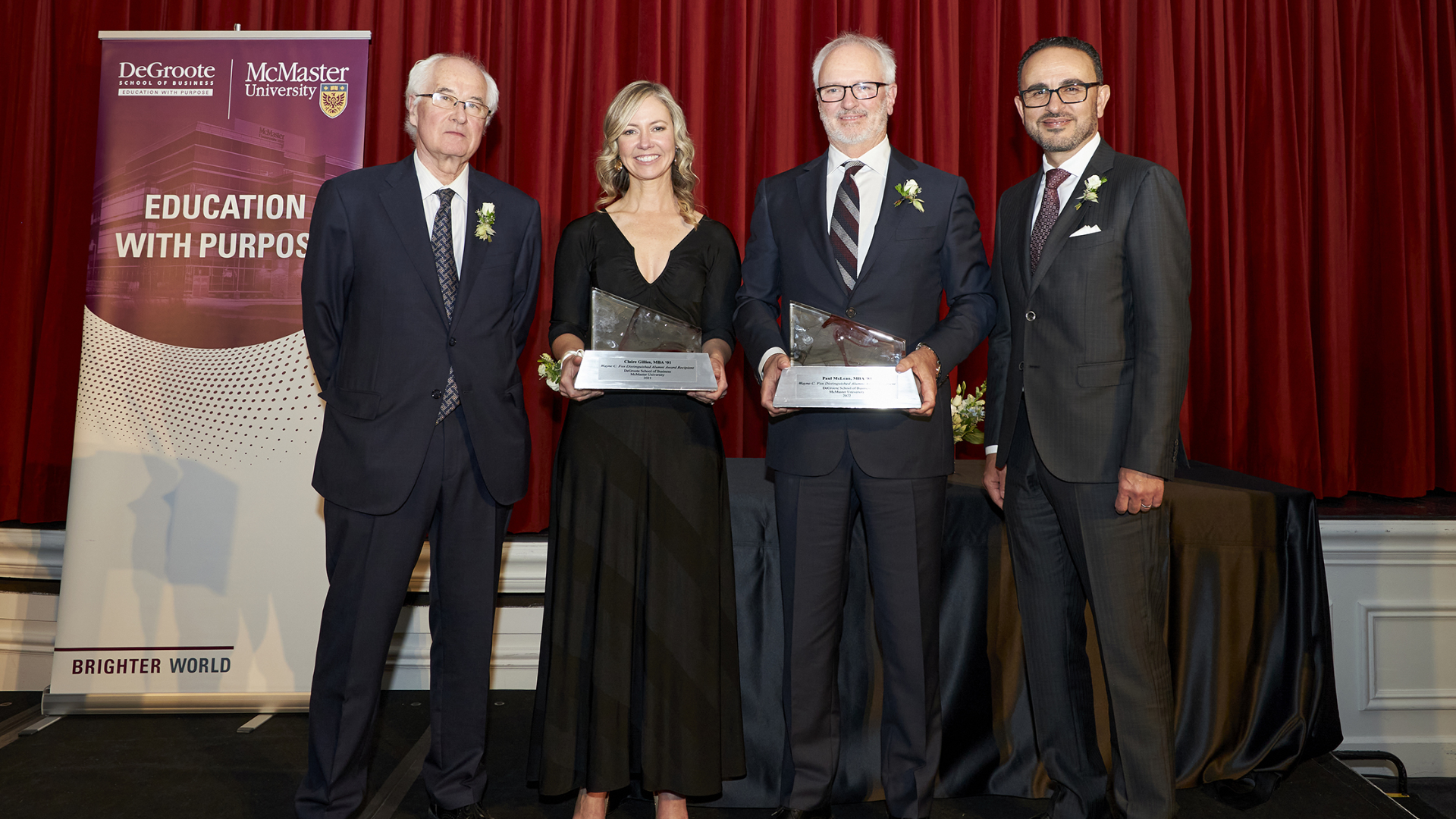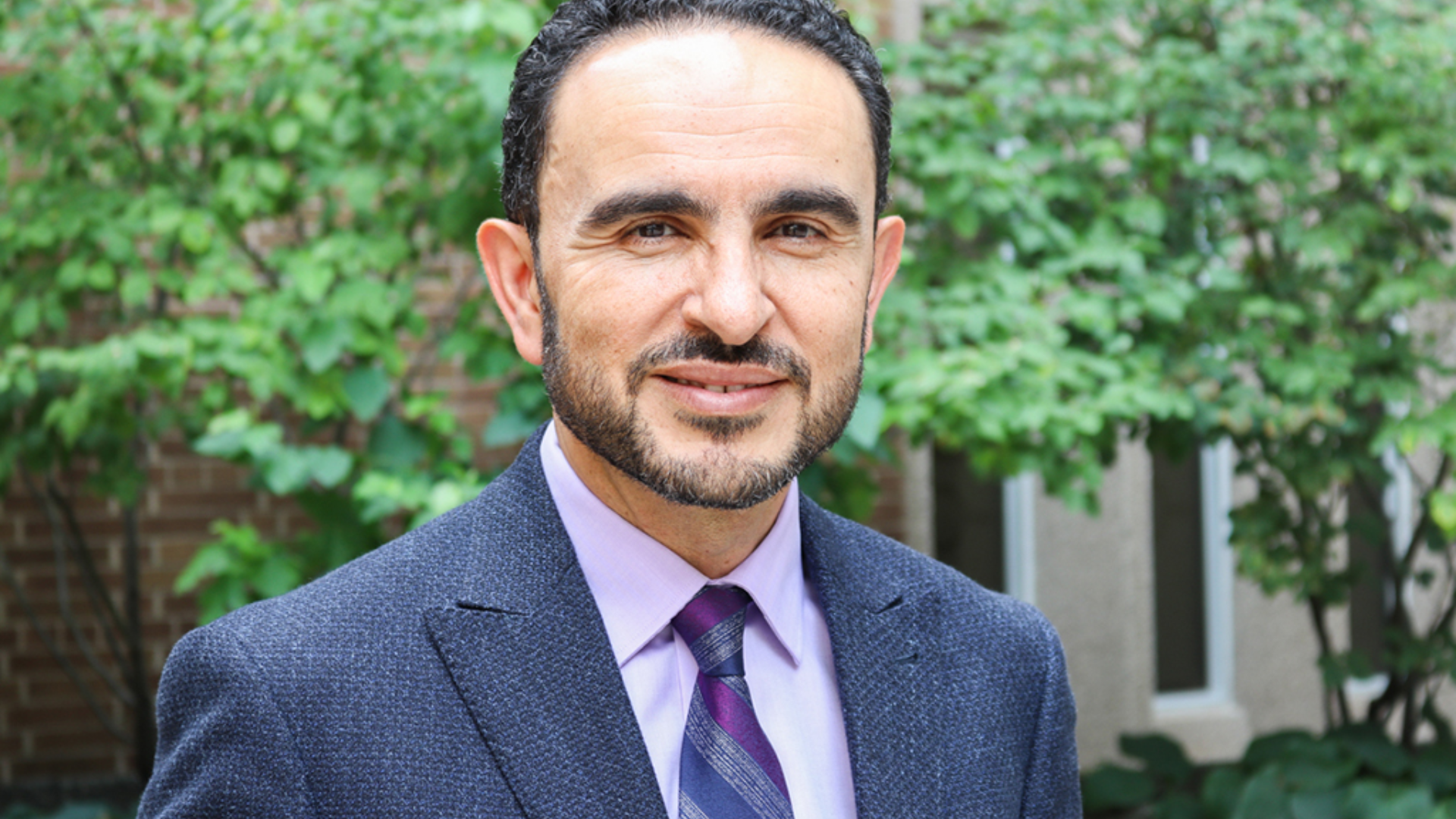ALUMNI DEVELOPMENT GIVE MCCD STRATEGIC PLAN | TEACHING AND LEARNING STUDENT
From vision to reality: McLean family’s inside look at the MCCD
November 4, 2024 ·
Contributed by: Joanna Williams, Marketing and Communications Strategist
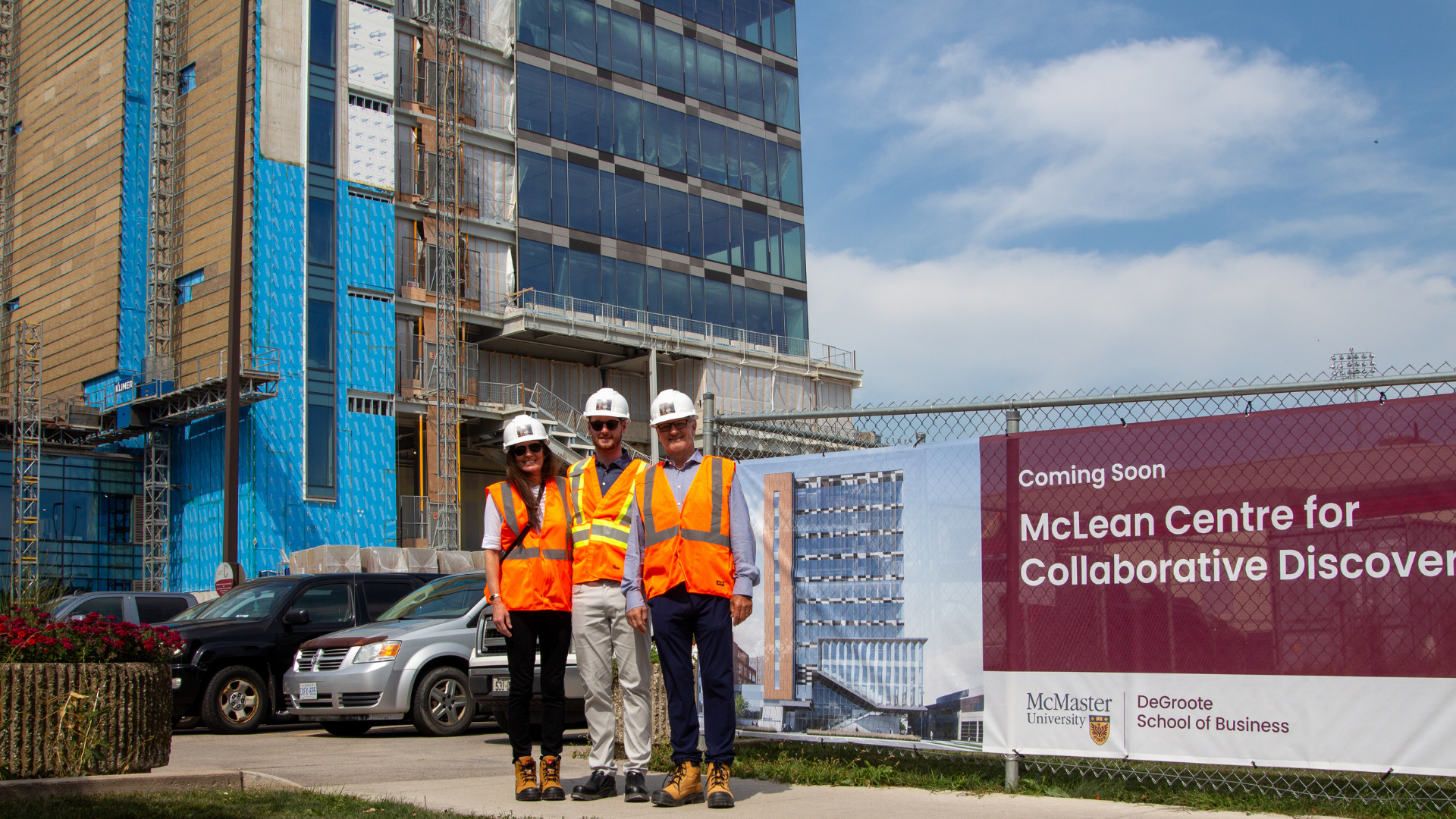
White hard hat on, check. Bright orange construction vest fastened, check. Steel-toed boots laced up, check. The first official hard hat tour of the new McLean Centre for Collaborative Discovery (MCCD) was under way. Taking the narrow construction elevator – located outside of the building – a handful of tour visitors carefully squeezed in and rode it all the way up to the ninth floor.
Among the tour group were Paul, Carol and Luke McLean – the namesake family of the new McLean Centre for Collaborative Discovery.
Stepping out of the elevator, onto the concrete floors they were greeted by framed walls and a first-hand view of the construction progress. But it was the view from the upper floors of the construction site overlooking McMaster’s campus that left a memorable impression.
After the tour, we had an opportunity to sit down with the McLean family to talk about what a building like this will mean for the students of McMaster.
“From my perspective, it’s seeing an idea become reality,” says Paul McLean (B.Sc. ‘80, MBA ’81). “Seeing the scope and scale of the building and the impact it is going to have on the education of students that go to McMaster in the future – that was impactful for me.”
The hard hat tour helped to bring to life this new space beyond artist renderings. “It is actually more breathtaking when you get up there and see the view,” adds Carol McLean. “It is going to be a special space.”

Collaboration across faculties
When this new building opens, Paul is most excited about students from different faculties across McMaster being able to come together to collaborate and work together.
Inspired by his daughter Lauren, who attended McMaster’s Faculty of Humanities and earned a Bachelor of Arts in Cultural Studies in 2017 and a Master of Arts in Gender Studies in 2018, Paul explains the impact he hopes the building’s vision will have on students.
“I learned quite a bit from my daughter, although her view and my view came from different spots, by the end of our discussions, I was more educated, and she was more educated. I can envision that in classrooms now, where you have a group of students coming in to collaborate on ideas, brainstorm solutions and talk about issues. This building is intended to bring multiple faculties together to educate together. That’s unique in the education world where we generally had silos in the past. This is intended to give all students access to cross-training between faculties.”
An example of this cross-faculty collaboration is the new Marinucci Entrepreneurial Bridge – an entire floor in the MCCD that will serve as the hub for McMaster’s entrepreneurship ecosystem, bringing students and faculty members across campus together in one space to share ideas, and reflects the legacy of entrepreneurship in Paul’s family.
With three generations of family members who attended McMaster University – Paul, his father Gordon, and his daughter Lauren – the family is committed to making a meaningful difference that will impact future generations.
“With Lauren going here, and my father and I having gone here, it was kind of a natural spot to help develop the next generation by making a building like this that is multi-generational,” adds Paul. “The intention is really to have an impact for a long time, and that fit our philanthropic approach to support students and education.”

Connecting future generations of business leaders
Bringing different voices and perspectives together is a key cornerstone of the family’s vision for MCCD. “The business leaders of the future need to have a broader education that takes their awareness to include the things that I have learned from my daughter,” says Paul.
For example, he mentions mental health is an important issue that could benefit from bringing together different views and areas of expertise.
“There are issues where we will be able to share the collaborative nature of problem solving and have a strong impact for a long time to come,” explains Paul. “McMaster is well known for health sciences, and I think mental health is impacting all of us in many ways in society. If we can get better educated on the business side: learn how to manage people as they contend with those issues, how to manage an environment, and create core values within a company on how we handle those kinds of things, we will learn much more if we include health sciences and humanities in those discussions. I have envisioned for a long time that the issues we face in society will not necessarily be solved but we will learn how to deal with them through the collaborative nature of the building.”
About MCCD
The McLean Centre for Collaborative Discovery will prepare students for the future of business by fostering collaboration, creativity and a hands-on approach to learning. This innovative space is where DeGroote and McMaster students, faculty, staff and community partners will come together to solve real-world problems and tackle challenges facing society. Visit McLean Centre for Collaborative Discovery for more information.

